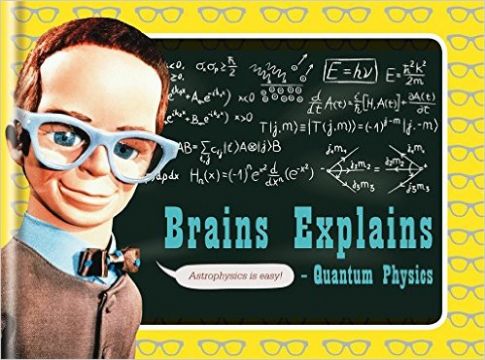
Cassell Illustrated
Congratulations to the 1300-strong group of physicists who won the Breakthrough Prize in physics on Sunday, for the discovery of neutrino oscillations--confirming that neutrinos can switch identities and have mass. This is the same discovery that was honored a few weeks ago by the Nobel committee, though notably in that case, only 2 physicists shared the prize. Which style of prize do you think is better? Should award committees seek out the individuals who head up big experiments for accolades, or should credit be shared equally between all involved? In the latest edition of the podcast, Brendan and I discuss this question, with help from astrophysicist Katie Mack of Melbourne University. (Katie Mack's interview was actually recorded before the Breakthrough announcement was made--and so some of her comments seem eerily prescient.)
I've also written an article for Nature addressing the contrasting styles of the awards, with comments from organisers of the Breakthrough and Nobel prizes, and from new Nobel and Breakthrough Laureate Art McDonald, who led one of the honored experiments at the Sudbury Neutrino Observatory in Canada.
Also in the news, Brendan and I talk through FQXi's recently launched $2million Physics of the Observer grant round. If you're interested in applying, don't forget that the deadline is 20 January 2016.
We also have an in-depth interview with SETI scientist Laurance Doyle, who chats about his plans to bounce radar off Jupiter's moons to test the nature of time. Speaking to reporter John Farrell, he explains why this could help separate the different conceptions of time offered by general relativity and quantum mechanics, potentially aiding in the unification of the two theories. You can read more about his project in Stephen Ashley's article "Solar-System-Sized Experiment to Put Time to the Test"--which also includes video of a short talk that Doyle gave at last year's FQXi conference.
Next up, physicist, philosopher and computational neuroscientist Nick Bostrom assesses the risk of humanity coming to an end--either through environmental disaster or due to runaway technological advances, such as artificial intelligence, nanotechnology or synthetic biology. He tells reporter Carinne Piekema just how worried we should be.
And finally, Brains from the TV show Thunderbirds explain quantum physics! Particle physicist Ben Still has ghostwritten a beginner's guide to the subatomic world in the style of International Rescue's aerospace engineer and he (Ben Still, that is!) tells reporter Sophie Hebden how he set about capturing Brains' style.